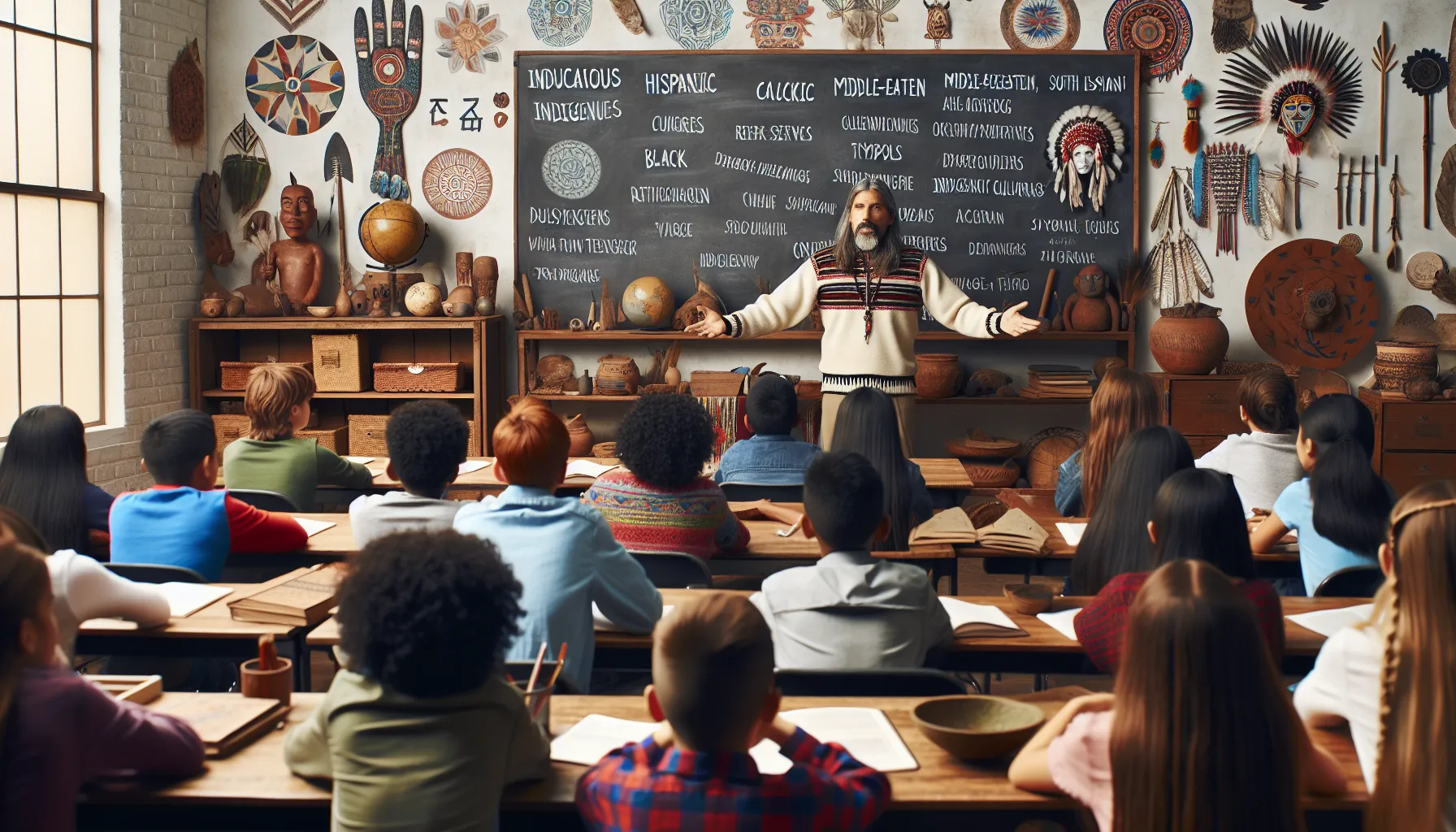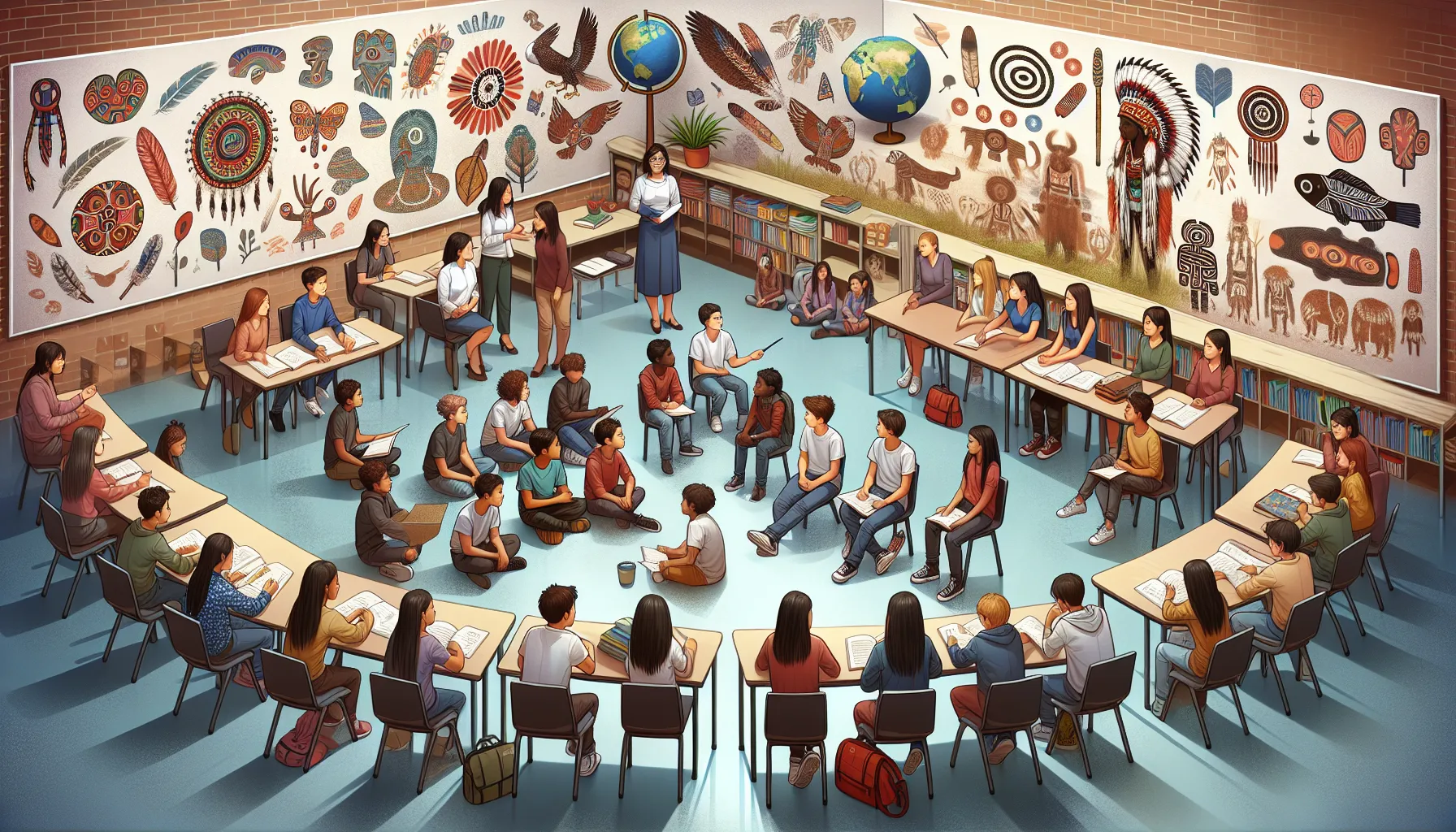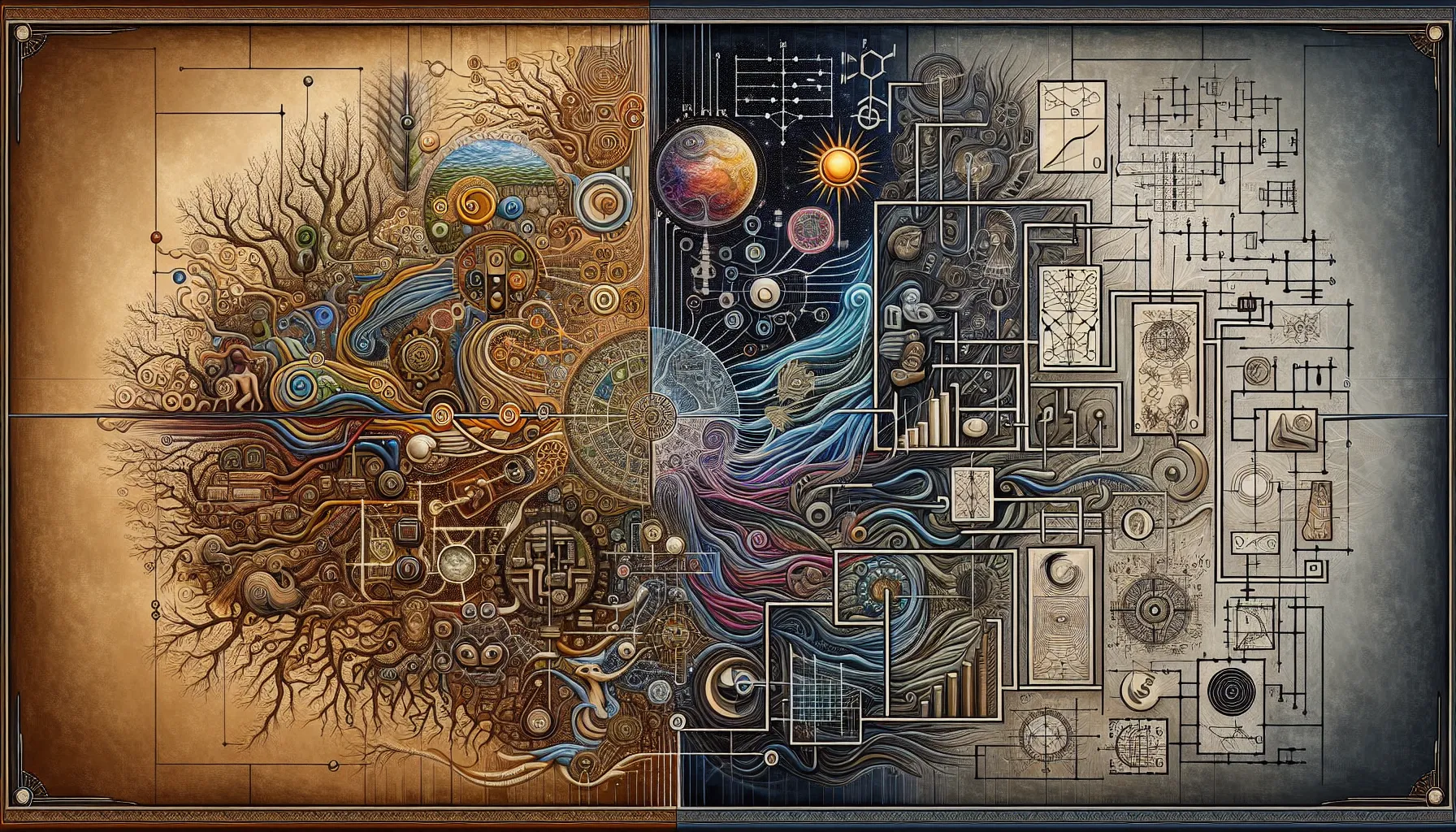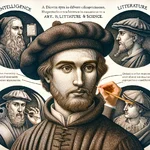In this IELTS Reading practice test, we’ll explore the fascinating topic of how traditional knowledge systems influence modern education. This theme is particularly relevant in today’s globalized world, where diverse cultural perspectives are increasingly valued in educational settings. Let’s dive into three passages of varying difficulty levels, each examining different aspects of this subject.
Passage 1 (Easy Text)
Indigenous Wisdom in the Classroom
In recent years, educators around the world have begun to recognize the value of incorporating indigenous knowledge into modern curricula. This shift represents a significant departure from the conventional Western education model that has dominated global learning for centuries. By integrating traditional wisdom with contemporary teaching methods, schools are creating more inclusive and culturally responsive learning environments.
One prime example of this integration can be seen in New Zealand, where Maori knowledge and practices have been woven into the national curriculum. Students learn about traditional ecological knowledge, such as sustainable farming techniques and natural resource management, alongside standard scientific concepts. This approach not only preserves cultural heritage but also provides students with a more holistic understanding of environmental issues.
Similarly, in Canada, many schools are incorporating First Nations perspectives into subjects like history, literature, and environmental studies. This includes learning about traditional storytelling, indigenous languages, and aboriginal healing practices. By doing so, educators aim to foster greater cultural understanding and respect among students from diverse backgrounds.
 Indigenous Classroom
Indigenous Classroom
The benefits of this integrated approach are manifold. Students develop a deeper appreciation for cultural diversity, gain alternative problem-solving skills, and learn to view global challenges through multiple lenses. Moreover, indigenous students often feel more valued and engaged when their cultural knowledge is recognized and respected in the classroom.
However, the integration of traditional knowledge into modern education is not without challenges. Educators must navigate cultural sensitivities, address potential conflicts between traditional beliefs and scientific theories, and ensure that indigenous knowledge is presented accurately and respectfully. Despite these hurdles, the trend towards a more inclusive educational model continues to gain momentum, promising a richer and more diverse learning experience for students worldwide.
Questions 1-5
Do the following statements agree with the information given in the reading passage?
Write
TRUE if the statement agrees with the information
FALSE if the statement contradicts the information
NOT GIVEN if there is no information on this
- Indigenous knowledge has always been a part of modern education systems.
- New Zealand has incorporated Maori knowledge into its national curriculum.
- Canadian schools teach First Nations languages in all subjects.
- Integrating traditional knowledge helps students develop diverse problem-solving skills.
- All educators agree on how to best incorporate indigenous knowledge into modern curricula.
Questions 6-10
Complete the sentences below.
Choose NO MORE THAN TWO WORDS from the passage for each answer.
- The integration of indigenous knowledge creates more __ and __ learning environments.
- In New Zealand, students learn about __ __ __ alongside scientific concepts.
- Canadian schools are incorporating __ __ into various subjects.
- The integrated approach helps students view global challenges through __ __.
- Educators must navigate __ __ when integrating traditional knowledge into modern education.
Passage 2 (Medium Text)
The Confluence of Ancient Wisdom and Modern Pedagogy
The intersection of traditional knowledge systems and contemporary education represents a complex and evolving landscape in the field of pedagogy. As globalization continues to reshape our understanding of knowledge acquisition and dissemination, educators and policymakers are increasingly recognizing the value of integrating indigenous wisdom with modern teaching methodologies. This synthesis not only enriches the learning experience but also addresses longstanding issues of cultural marginalization in education.
Traditional knowledge systems, often passed down through generations via oral traditions, practical demonstrations, and communal practices, embody a wealth of information about the natural world, social structures, and sustainable living practices. These systems, developed over millennia, offer unique perspectives on problem-solving, environmental stewardship, and holistic well-being that can complement and enhance modern scientific understanding.
The incorporation of traditional knowledge into formal education takes various forms across different regions. In Australia, for instance, the concept of “two-way learning” has gained traction, where Aboriginal and Torres Strait Islander knowledge is taught alongside Western scientific concepts. This approach not only validates indigenous perspectives but also provides students with a more comprehensive worldview. Similarly, in parts of South America, ethnomathematics – the study of mathematical concepts within cultural contexts – is being used to make mathematics more relevant and accessible to indigenous students.
 Two-Way Learning
Two-Way Learning
However, the process of integrating traditional knowledge into modern curricula is not without challenges. One significant hurdle is the epistemological divide between indigenous ways of knowing and Western scientific methods. While traditional knowledge often relies on holistic, experiential, and spiritual understandings, modern education typically emphasizes empirical evidence and reductionist approaches. Bridging this gap requires careful consideration and respect for both knowledge systems.
Another challenge lies in the preservation and accurate transmission of traditional knowledge within formal educational settings. The risk of oversimplification or misrepresentation is ever-present, particularly when traditional knowledge is translated into standardized curricula. To mitigate this, many educators advocate for direct involvement of indigenous knowledge holders in curriculum development and teaching processes.
Despite these challenges, the benefits of integrating traditional knowledge into modern education are increasingly recognized. This approach fosters cultural pride and identity among indigenous students, promotes intercultural understanding among all learners, and contributes to the preservation of valuable traditional knowledge that might otherwise be lost. Moreover, it aligns with global efforts to promote sustainable development and address environmental challenges, as many traditional practices offer sustainable alternatives to modern resource management techniques.
The fusion of traditional and modern educational paradigms also has the potential to enhance critical thinking skills. By exposing students to multiple ways of understanding and interacting with the world, this integrated approach encourages learners to question assumptions, consider alternative perspectives, and develop more nuanced problem-solving strategies.
As the field of education continues to evolve, the integration of traditional knowledge systems into modern pedagogy represents a promising avenue for creating more inclusive, culturally relevant, and holistic learning experiences. While challenges remain, the ongoing dialogue between traditional wisdom and contemporary education holds the potential to enrich our collective understanding and prepare students for the complex, interconnected world of the future.
Questions 11-14
Choose the correct letter, A, B, C, or D.
-
According to the passage, traditional knowledge systems are typically passed down through:
A) Written documents
B) Oral traditions and practical demonstrations
C) Formal education systems
D) Religious institutions -
The concept of “two-way learning” in Australia involves:
A) Teaching only Aboriginal knowledge
B) Replacing Western concepts with indigenous ones
C) Teaching Aboriginal knowledge alongside Western concepts
D) Separating indigenous and non-indigenous students -
One of the main challenges in integrating traditional knowledge into modern curricula is:
A) The lack of interest from students
B) The epistemological divide between knowledge systems
C) The cost of implementation
D) The shortage of qualified teachers -
The integration of traditional knowledge into modern education is seen as beneficial because it:
A) Replaces outdated scientific methods
B) Simplifies complex concepts for students
C) Promotes cultural pride and intercultural understanding
D) Eliminates the need for modern technology in classrooms
Questions 15-19
Complete the summary below.
Choose NO MORE THAN TWO WORDS from the passage for each answer.
The integration of traditional knowledge systems into modern education presents both opportunities and challenges. While it offers unique perspectives on 15)__ and environmental stewardship, there is a risk of 16)__ or misrepresentation when translating this knowledge into standardized curricula. To address this, many advocate for the involvement of 17)__ in curriculum development. Despite the challenges, this integrated approach can foster 18)__ among indigenous students and promote 19)__ among all learners.
Question 20
Choose the correct letter, A, B, C, or D.
- The main purpose of this passage is to:
A) Criticize modern educational systems
B) Promote the superiority of traditional knowledge systems
C) Discuss the challenges and benefits of integrating traditional knowledge into modern education
D) Argue for the complete replacement of Western education with indigenous teaching methods
Passage 3 (Hard Text)
The Symbiosis of Traditional and Modern Educational Paradigms: A Critical Analysis
The juxtaposition of traditional knowledge systems and modern educational frameworks has emerged as a critical area of study in contemporary pedagogical discourse. This complex interplay between ancient wisdom and current educational practices presents both unprecedented opportunities and formidable challenges in the quest for a more comprehensive and inclusive approach to learning. As global societies grapple with issues of cultural preservation, environmental sustainability, and equitable education, the integration of indigenous epistemologies into mainstream curricula has gained significant traction.
Traditional knowledge systems, characterized by their holistic, experiential, and often spiritually-infused approaches to understanding the world, offer a stark contrast to the reductionist and empirically-driven methodologies that have long dominated Western education. These indigenous systems, developed over millennia through close observation of natural phenomena and intergenerational transmission of wisdom, encompass a vast array of disciplines including ecology, medicine, astronomy, and social governance. The potential synergies between these time-honored traditions and modern scientific paradigms are increasingly recognized as vital for addressing complex global challenges.
 Epistemological Divide
Epistemological Divide
One of the most compelling arguments for the integration of traditional knowledge into modern education lies in its potential to foster cognitive diversity and enhance problem-solving capabilities. By exposing students to multiple ways of knowing and interpreting the world, educators can cultivate a more nuanced and adaptable mindset. This cognitive flexibility is particularly crucial in an era characterized by rapid technological advancement and unprecedented global interconnectedness. Moreover, the inclusion of indigenous perspectives can serve as a powerful tool for decolonizing education and rectifying historical imbalances in knowledge representation.
However, the process of integrating traditional knowledge into formalized educational structures is fraught with complexities. A primary challenge lies in the fundamental epistemological differences between indigenous ways of knowing and Western scientific methods. While the latter prioritizes objectivity, replicability, and quantifiable data, traditional knowledge often emphasizes subjective experiences, contextual understanding, and holistic interpretations. Bridging this epistemological divide requires not only careful curriculum design but also a fundamental re-evaluation of what constitutes valid knowledge.
Another significant hurdle is the risk of cultural appropriation and misrepresentation of traditional knowledge. The translation of complex, culturally-embedded wisdom into standardized educational formats can lead to oversimplification or distortion of indigenous concepts. This danger is particularly acute when traditional knowledge is extracted from its cultural context and presented without proper acknowledgment of its origins or spiritual significance. To mitigate these risks, many scholars advocate for the direct involvement of indigenous knowledge holders in curriculum development and implementation processes.
The integration of traditional knowledge also raises questions about intellectual property rights and the commercialization of indigenous wisdom. As traditional practices, such as medicinal knowledge or sustainable agricultural techniques, gain recognition in mainstream education and research, there is a growing concern about the potential exploitation of these resources without fair compensation or acknowledgment of their origins. Developing ethical frameworks for the sharing and protection of traditional knowledge within educational contexts remains a critical challenge.
Despite these obstacles, numerous educational institutions worldwide have made significant strides in incorporating traditional knowledge into their curricula. In Canada, for instance, the concept of “Two-Eyed Seeing” has gained prominence, advocating for the simultaneous use of indigenous and Western ways of knowing. This approach encourages students to draw upon the strengths of both knowledge systems, fostering a more comprehensive understanding of complex issues. Similarly, in New Zealand, the integration of Maori knowledge and practices into the national curriculum has been hailed as a model for culturally responsive education.
The potential benefits of this integrative approach extend beyond cultural preservation and educational equity. By incorporating traditional ecological knowledge into environmental science curricula, for example, educators can provide students with alternative perspectives on sustainability and conservation. This holistic understanding is increasingly recognized as crucial for addressing global environmental challenges. Moreover, the inclusion of indigenous healing practices in medical education can broaden healthcare professionals’ understanding of holistic well-being and alternative therapeutic approaches.
As the field of education continues to evolve, the symbiosis of traditional and modern knowledge systems represents a promising frontier for innovation and inclusivity. While significant challenges remain in terms of epistemological reconciliation, cultural sensitivity, and equitable implementation, the potential benefits of this integrated approach are profound. By fostering a more diverse, holistic, and culturally responsive educational paradigm, we can better equip future generations to navigate the complexities of our interconnected world and address the multifaceted challenges of the 21st century.
Questions 21-26
Complete the summary below.
Choose NO MORE THAN TWO WORDS from the passage for each answer.
The integration of traditional knowledge systems into modern education presents both opportunities and challenges. Traditional knowledge systems offer a 21)__ approach to understanding the world, in contrast to the 22)__ methodologies of Western education. This integration can foster 23)__ and enhance problem-solving skills. However, there are significant challenges, including 24)__ differences between indigenous and Western ways of knowing, and the risk of 25)__ of traditional knowledge. Despite these obstacles, many institutions have made progress in incorporating traditional knowledge, with approaches like 26)__ gaining prominence in Canada.
Questions 27-32
Do the following statements agree with the claims of the writer in the reading passage?
Write
YES if the statement agrees with the claims of the writer
NO if the statement contradicts the claims of the writer
NOT GIVEN if it is impossible to say what the writer thinks about this
- Traditional knowledge systems have been developed over thousands of years.
- The integration of traditional knowledge into modern education is a straightforward process.
- Exposing students to multiple ways of knowing can improve their cognitive flexibility.
- Western scientific methods are superior to traditional knowledge systems in all aspects.
- The concept of “Two-Eyed Seeing” encourages the use of both indigenous and Western knowledge.
- Incorporating traditional ecological knowledge into environmental science curricula is unnecessary.
Questions 33-35
Choose the correct letter, A, B, C, or D.
-
According to the passage, one of the main risks in integrating traditional knowledge into formal education is:
A) Increased costs for educational institutions
B) Resistance from students to new ideas
C) Cultural appropriation and misrepresentation
D) Reduced emphasis on scientific methods -
The passage suggests that the integration of traditional knowledge into modern education can:
A) Completely replace Western scientific methods
B) Provide alternative perspectives on sustainability and conservation
C) Solve all current educational challenges
D) Eliminate cultural differences in the classroom -
The author’s overall stance on the integration of traditional knowledge into modern education can be described as:
A) Highly critical
B) Cautiously optimistic
C) Completely neutral
D) Overwhelmingly enthusiastic
Answer Key
Passage 1
- FALSE
- TRUE
- NOT GIVEN
- TRUE
- NOT GIVEN
- inclusive, culturally responsive
- traditional ecological knowledge
- traditional storytelling
- multiple lenses
- cultural sensitivities
Passage 2
- B
- C
- B
- C
- problem-solving
- oversimplification
- indigenous knowledge holders
- cultural pride
- intercultural understanding
- C
Passage 3
- holistic
- reductionist
- cognitive diversity
- epistemological
- cultural appropriation
- Two-Eyed Seeing
- YES
- NO
- YES
- NO
- YES
- NO
- C
- B
- B
This IELTS Reading practice test explores the complex relationship between traditional knowledge systems and modern education. By studying these passages, you’ll gain insights into how indigenous wisdom is being integrated into contemporary curricula worldwide, the challenges this integration faces, and its potential benefits for learners and society at large.
Remember, when approaching IELTS Reading tasks, it’s crucial to:
- Skim the passage quickly to get an overview before diving into the questions.
- Pay attention to key words and phrases in both the passage and the questions.
- Be aware of synonyms and paraphrasing, as the same idea may be expressed differently in the question and the passage.
- Manage your time effectively, allocating about 20 minutes per passage.
For more IELTS preparation resources and tips, check out our articles on cultural influences on educational policy development and cultural diversity in global higher education.
Good luck with your IELTS preparation!


